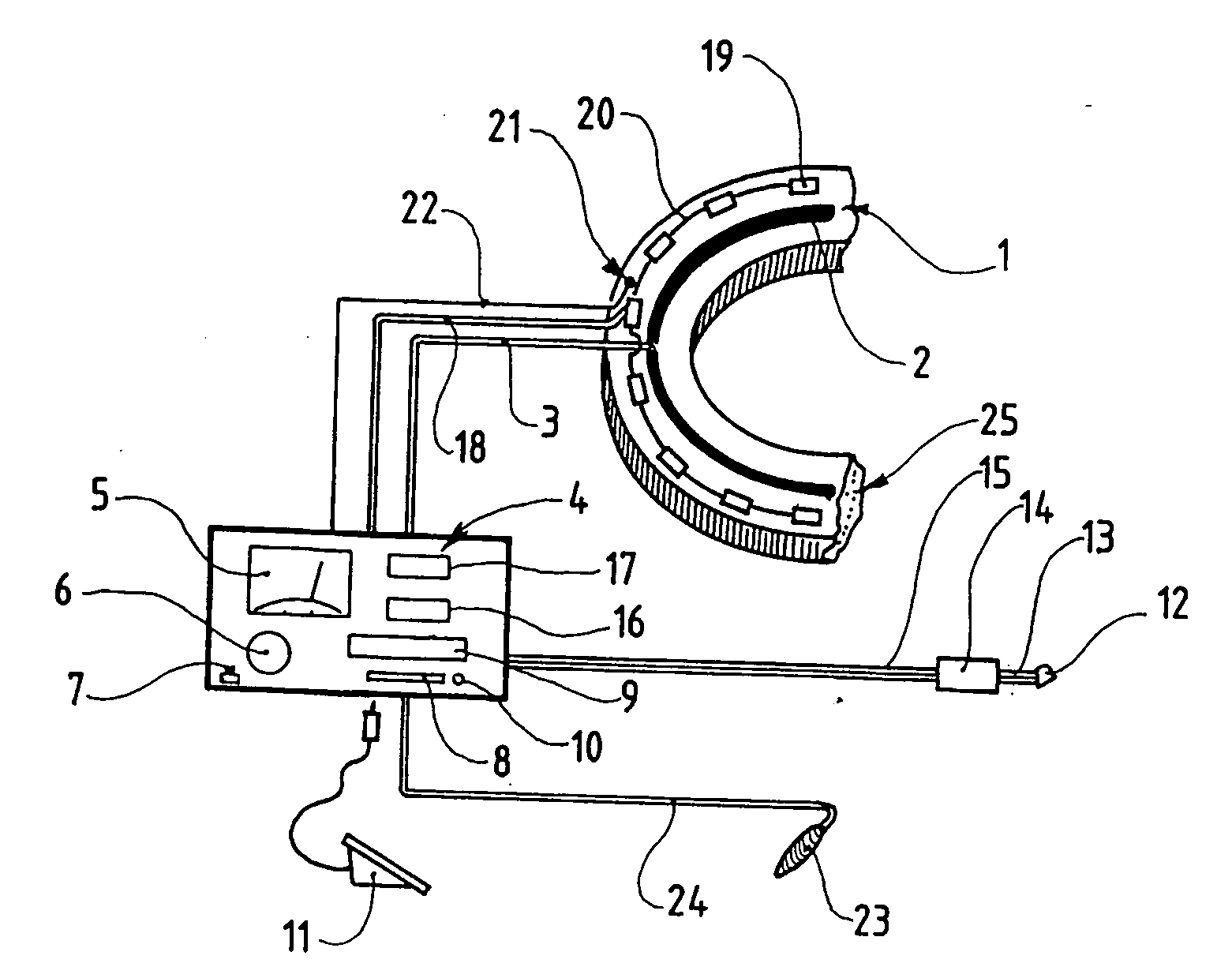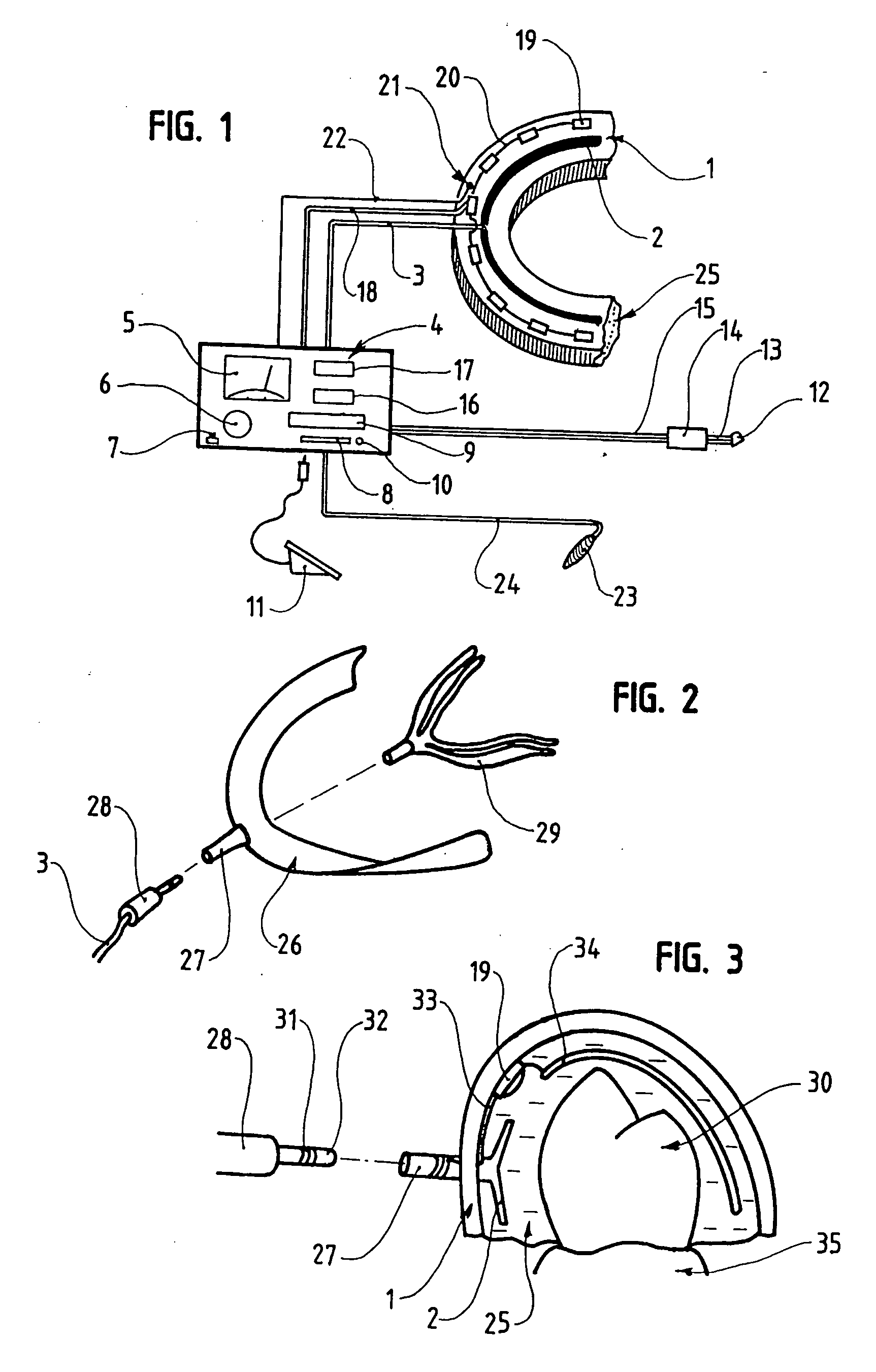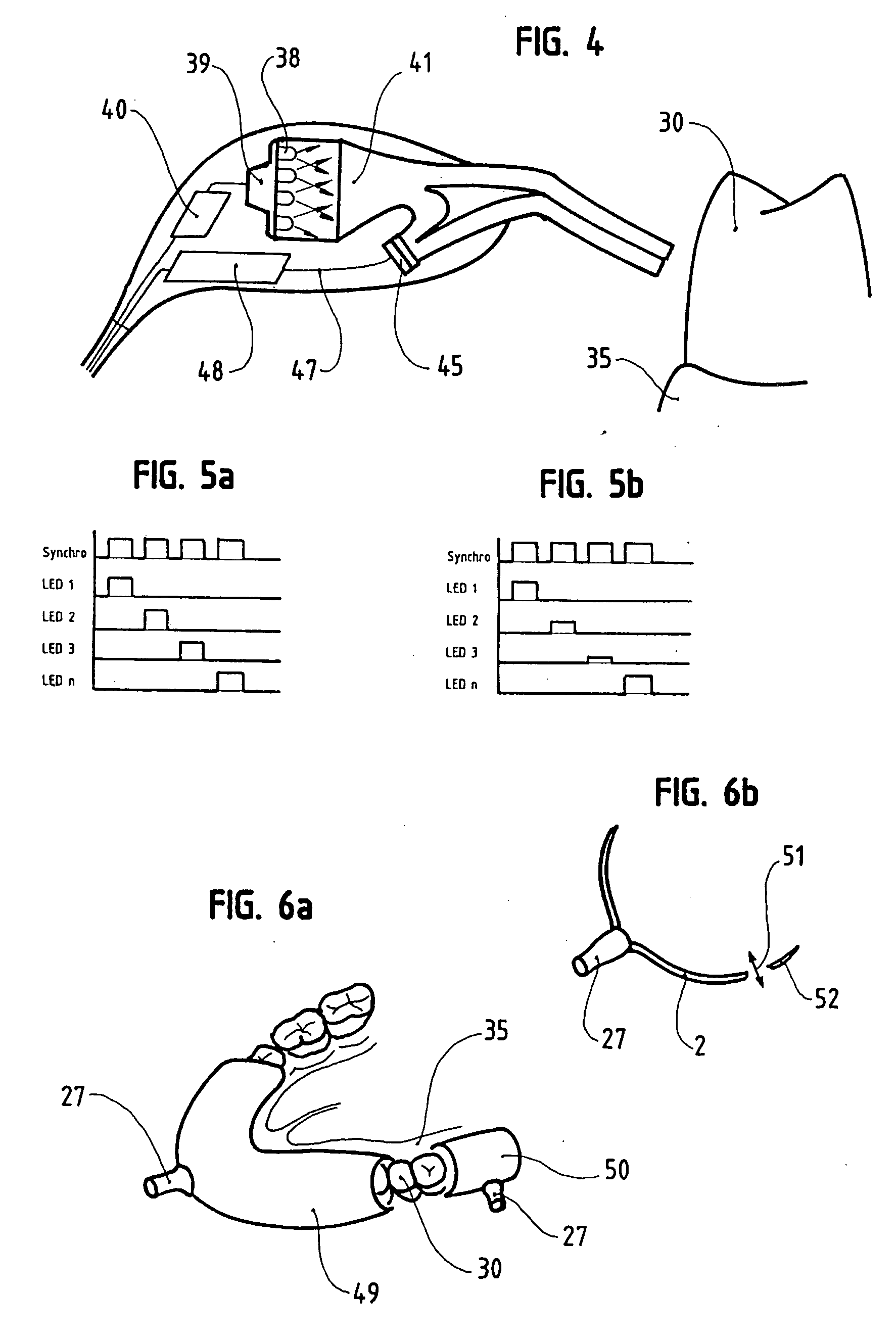Bleaching device using electro-optical and chemical means, namely in the medical and dental field
a technology of electro-optical and chemical means, applied in the field of bleaching devices, can solve the problems of many limits, long application time, and immobilization of patients, and achieve the effect of fast penetration
- Summary
- Abstract
- Description
- Claims
- Application Information
AI Technical Summary
Benefits of technology
Problems solved by technology
Method used
Image
Examples
Embodiment Construction
[0100] As shown in these figures, the present invention relates to a bleaching device which will be of particular interest in the dental field.
[0101] As can be seen in FIG. 1, this device includes a standard gutter 1 with its electrophoretic resistor 2 and an array of activating LEDs 19 connected through electric connections 3 to an electronic control, monitoring and storing box 4 and with reversed polarization handle 23.
[0102] The standard gutter 1, aimed at covering the dental arch to be bleached, is provided with a electric conduction system 2 allowing the creation of an electrophoretic field, accompanied by a thermal rise, having a positive or negative polarity, and which is connected, for example by an electric lead 3, with an adjusting and control unit 4 contained in a casing, allowing to define or program the parameters of the clinical treatment (time, degree wished by the patient) and those defining the electrophoretic field (intensity, voltage . . . ). These controllable ...
PUM
 Login to View More
Login to View More Abstract
Description
Claims
Application Information
 Login to View More
Login to View More - R&D
- Intellectual Property
- Life Sciences
- Materials
- Tech Scout
- Unparalleled Data Quality
- Higher Quality Content
- 60% Fewer Hallucinations
Browse by: Latest US Patents, China's latest patents, Technical Efficacy Thesaurus, Application Domain, Technology Topic, Popular Technical Reports.
© 2025 PatSnap. All rights reserved.Legal|Privacy policy|Modern Slavery Act Transparency Statement|Sitemap|About US| Contact US: help@patsnap.com



